Notes
- ↑ "Ashley Election". Lyttelton Times . Vol. XXVIII, no. 2070. 9 August 1867. p. 2. Retrieved 21 December 2020– via Papers Past.
| | This New Zealand election-related article is a stub. You can help Wikipedia by expanding it. |
The 1867 Ashley by-election was a by-election held on 7 August 1867 during the 4th New Zealand Parliament in the Canterbury electorate of Ashley.
The by-election was caused by the resignation of the incumbent MP Lancelot Walker. The by-election was won by Henry Tancred.
Tancred was unopposed. There were complaints that the nominating booth at the Survey Office in Mount Grey Downs was in the least populated part of the electorate and difficult of access. James Henry Moore, a member of the Canterbury Provincial Council representing the Sefton electorate, suggested that the Road Board Office at Saltwater Creek was more accessible. [1]
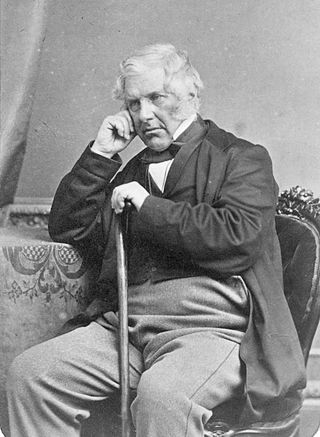
Henry Sewell was a New Zealand politician. He was a notable campaigner for New Zealand self-government, and is generally regarded as having been the country's first premier, having led the Sewell Ministry in 1856. He later served as Colonial Treasurer (1856–1859), as Attorney-General (1861–1862), and twice as Minister of Justice.

William Sefton Moorhouse was a British-born New Zealand politician. He was the second Superintendent of Canterbury Province.

James Edward FitzGerald was a New Zealand politician. According to some historians, he should be considered the country's first premier, although a more conventional view is that neither he nor his successor should properly be given that title. He was a notable campaigner for New Zealand self-governance. He was the first Superintendent of the Canterbury Province.
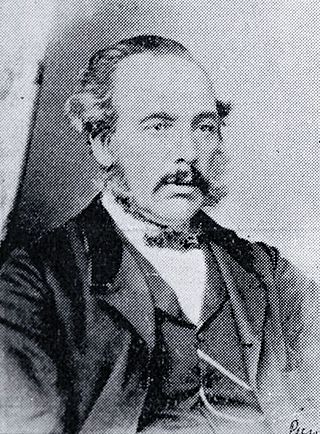
Isaac Luck was a New Zealand architect. A professional builder, he arrived in Lyttelton on the Steadfast in 1851. He was the third chairman of the Christchurch Town Council. He was the brother-in-law of and in partnership with Benjamin Mountfort, and was the less well-known architectural partner for the design of the Canterbury Provincial Council Buildings.
Ashley was a New Zealand electorate situated north of Christchurch. It was in use from 1866 to 1902, and was replaced with the Hurunui electorate.

Henry John Tancred, also known as Harry Tancred, was a 19th-century New Zealand politician.
Lyttelton is a former New Zealand parliamentary electorate. It existed from 1853 to 1890, and again from 1893 to 1996, when it was replaced by the Banks Peninsula electorate.

Richard Meredith was a Liberal Party Member of Parliament in New Zealand. A teacher by training, he was a farmer later in his life. He lived in Canterbury and was a member of many public bodies.
Hurunui was a parliamentary electorate in the Canterbury region of New Zealand, from 1902 to 1963.

John Evans Brown was a 19th-century Member of Parliament in New Zealand. Born in Pennsylvania, he came to New Zealand after spending time in Australia, where he was a farmer and US Consul. He farmed in Canterbury, where he was known as "Yankee" Brown. Three of his brothers in law, through his first wife, served as his fellow Members of Parliament. He married a second time, as his first wife died young, and moved back to the United States. On his father's land in Asheville, he came to considerable wealth due to the mining of mica.
Christchurch Country was a parliamentary electorate in the Canterbury region of New Zealand from 1853 to 1860. It was thus one of the original 24 electorates used for the 1st New Zealand Parliament.
Christchurch was a parliamentary electorate in Christchurch, New Zealand. It existed three times. Originally it was the Town of Christchurch from 1853 to 1860. From the 1860–1861 election to the 1871 election, it existed as City of Christchurch. It then existed from the 1875–1876 election until the 1881 election. The last period was from the 1890 election to the 1905 election. Since the 1946 election, a similarly named electorate called Christchurch Central has been in existence.

The Sewell Ministry was the first responsible government in New Zealand. Unlike previous executives, its members were held accountable to Parliament. This would form the basis for future governments in New Zealand.

Samuel Paull Andrews was a 19th-century politician in Christchurch, New Zealand. Originally from the Isle of Wight, he was the first working class man to become a Member of Parliament in his chosen country.
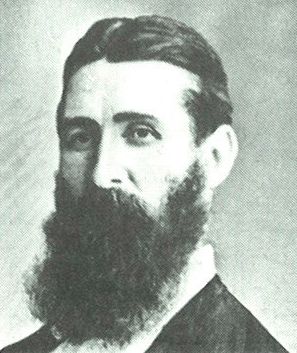
Henry Thomson JP was a 19th-century Mayor of Christchurch and Member of Parliament for the Christchurch North electorate in Canterbury, New Zealand.
The 4th New Zealand Parliament was a term of the Parliament of New Zealand.
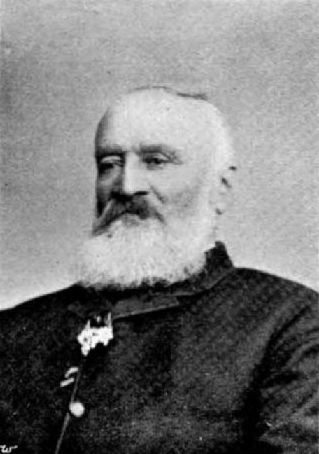
Alfred Cox was a 19th-century runholder and Member of the New Zealand House of Representatives. Born in New South Wales into an upper middle class military family, he was sent home to England to learn about farming. Upon returning to New South Wales, he heard about the large profits that were possible in South Canterbury and bought licences for land that he had not seen. He stocked the land, put a manager in charge and made another trip to England with his wife and their, at that time, small family. He moved to New Zealand permanently in 1857 and lived on his large farm, Raukapuka, which stretched from the sea to the foothills, and of which the homestead was located in present-day Geraldine. He sold his South Canterbury interests and moved to the Waikato, where he bought large land holdings in Hamilton and Thames. He tried to drain his swamp land and lost a lot of money with those ventures. He sold up in 1882 and moved to Christchurch, where he retired.
William John Warburton Hamilton, who generally signed as J. W. Hamilton, was an administrator, explorer, and politician in New Zealand.
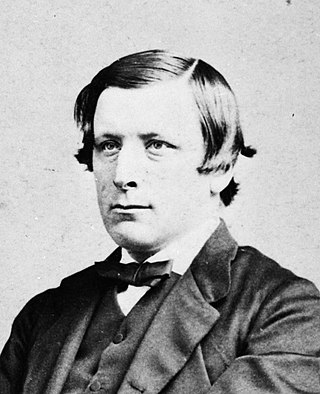
The 1868 Avon by-election was a by-election held on 8 June during the 4th New Zealand Parliament in the Christchurch electorate of Avon.
George Arthur Emilius Ross was a New Zealand farmer and provincial politician. A cultured and well-educated man, he suffered a breakdown while at Oxford University and relocated to Christchurch for health reasons before he finished his degree. After a short period as a cadet to learn the basics of sheep farming, he became a major land owner. He was an elected member of the Canterbury Provincial Council for the rural Rakaia electorate and was on the Canterbury Provincial Executive Council on a number of occasions including nearly two years as provincial treasurer. Well-liked as an individual, he was chaotic as a businessman and went bankrupt after a harsh winter in 1867 that caused great loss of stock. He suffered a mental breakdown and disappeared from public life thereafter, with his young wife, Sibella, sustaining the family by running a school that her parents had financed for them. Ross died young aged 48 and his wife outlived him by five decades, bringing up a family of eight children by herself. The West Coast town of Ross was named after him during his lifetime.